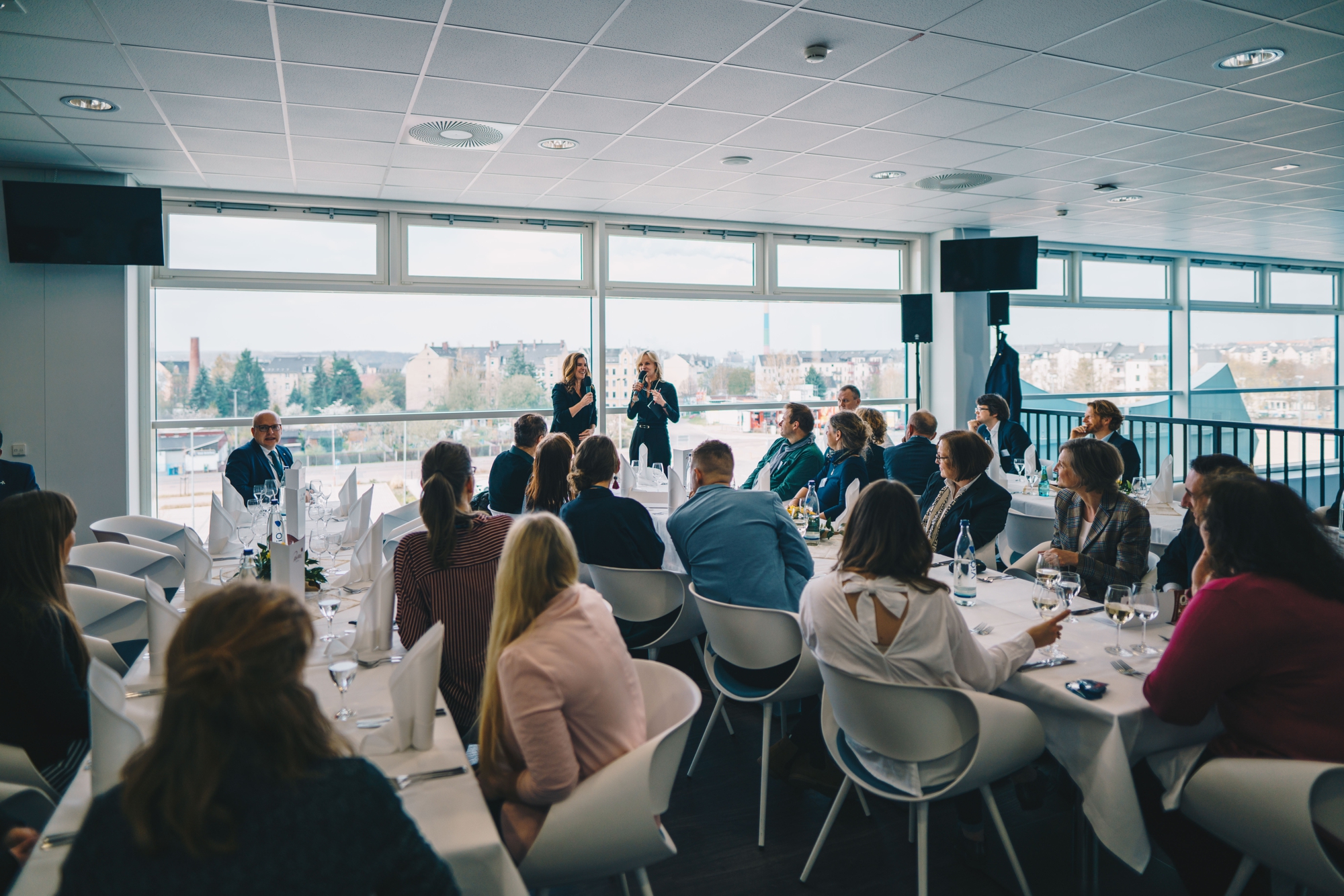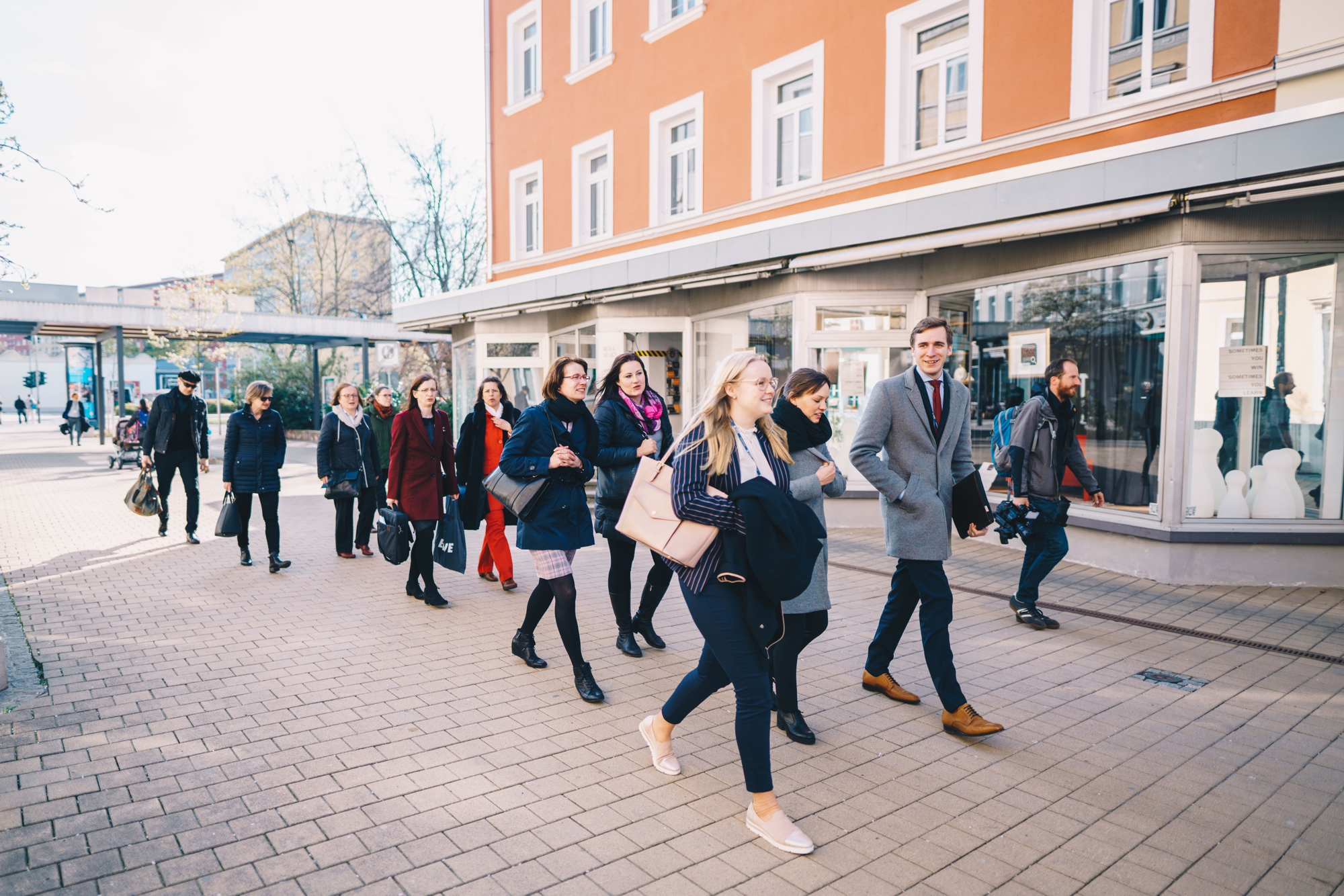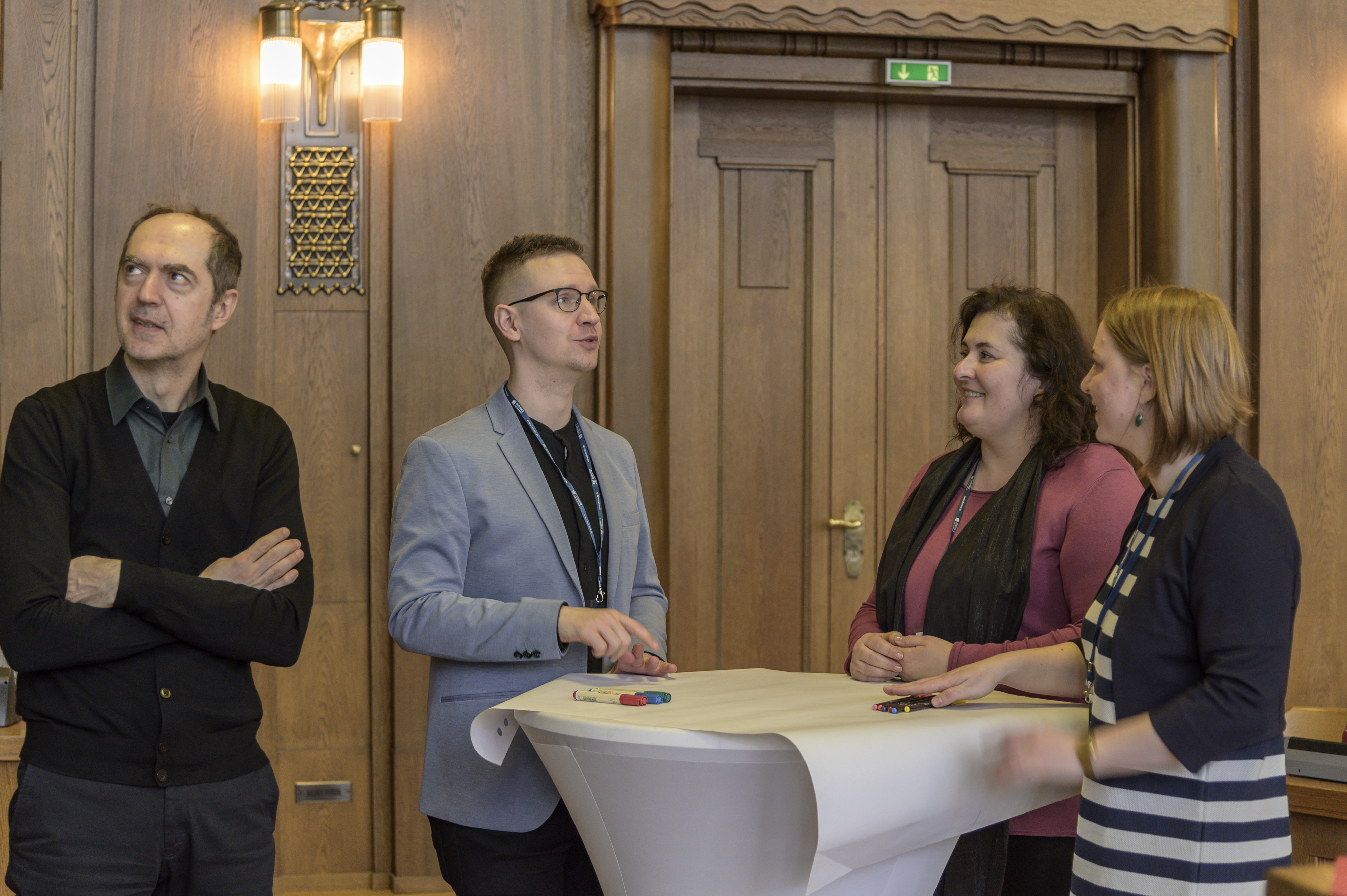Chemnitz’s first twin cities’ conference has come to an end. Delegations from Chemnitz’s twin cities ‒ Düsseldorf, Ljubljana, Lodz, Manchester, Mulhouse, Tampere, Timbuktu, Usti nad Labem and Volgograd ‒ travelled to the city to take part in the conference, entitled City Partnerships in Challenging Times. The Twin Cities Conference looked at the key topics of urban development, culture, civic participation and the Chemnitz2025 Capital of Culture application.
After two days of lively discussion in a variety of panels and workshops, Mayor Sven Schulze came to this conclusion: “Our aim was to learn from one another and network, and I think we did just that! I would be delighted if we could continue what we started in Chemnitz in the very near future, with shared ideas and projects – we are bound to come up with some great ideas for shaking things up.”
Getting local people to take part in the process of change was a central topic at the Cities About People conference”. “It is people who have to bring about change,” participants concluded. “Our livelihoods and basic needs should be at the heart of what we do. And we must become even more aware of the quality of our cities,” emphasised Mayor Michael Stötzer.
This afternoon, delegation leaders signed the Chemnitz Golden Book.
Conference topics included culture as a strategy for integrated and sustainable urban development. Other key issues under discussion included rethinking and transforming public spaces, civic participation and new partnerships between a city’s administration and its people. City waterways design is not only an issue in Chemnitz, but also in Düsseldorf, Ljubljana, Volgograd and Muhlhouse.
Participating cities also agreed to stay in touch and exchange information on these issues on a regular basis in the future. They see themselves as ambassadors beyond national borders, building bridges between countries, cultures and, above all, people.
Mayor Sven Schulze, who opened the conference yesterday, highlighted the importance of thinking outside the proverbial box: “Mutual interest and friendships are good for us. The fact that so many twin cities accepted our invitation shows that this partnership is just as important to them as it is to Chemnitz. In times when debate can be hostile and unforgiving, it is vital to stick together.” He also invited guests to form their own opinions of the city during their two-day stay in Chemnitz. And they got the opportunity to do just that on a tour of the city with Mayor Michael Stötzer.
In his keynote speech on Wednesday, Dr. Martin Böhringer, co-founder of Chemnitz-based internet business Staffbase, spoke up passionately for Chemnitz and for internationality. In response to the often-heard question “But why Chemnitz?” he said: “Here we have space for ideas, space for living, space to allow short travelling times.” In addition, his company has long taken an international approach, and employs staff from 18 different nations. “It makes us richer in every respect,” the entrepreneur went on to declare.
Yesterday evening, participants attended a welcome reception in the town hall’s famous Wandelhalle, where they got the chance to mingle with guests from the EUROCITIES Culture Forum, which is taking place concurrently in Chemnitz. A prominent guest was Katarina Witt, Olympic figure skating champion and honorary citizen of Chemnitz.
The three cities applying to become European Capital of Culture have agreed to exchange ideas and work on joint projects as they journey towards the title. Ljubljana and Chemnitz are working towards the title in 2025, while the Finnish city of Tampere has its sights set on the following year.
Düsseldorf and Chemnitz have agreed to help apprentices from each city get work experience in the other. This is a tradition that started in the early 1990s, and this year’s conference was the perfect opportunity to revive it.
Travelling the furthest to attend the conference was Abdoulaye Kalil Ascofaré, from Timbuktu in Mali. Today he spoke about the difficult conditions still faced by this war-torn city: a high crime rate, and basic needs such as the rebuilding of schools and health services. Support with these issues is absolutely vital, he said, adding that he was to have in Chemnitz a partner city that cared so much about Timbuktu.
The conference was the first time Chemnitz’s twin cities had met in this way. The city is also in regular contact with its sister communities abroad, in fields ranging from sport to music to school exchanges to meetings with other local fire brigades.






Get Social